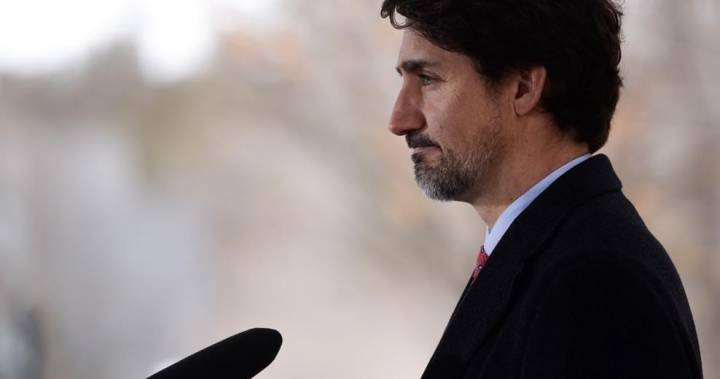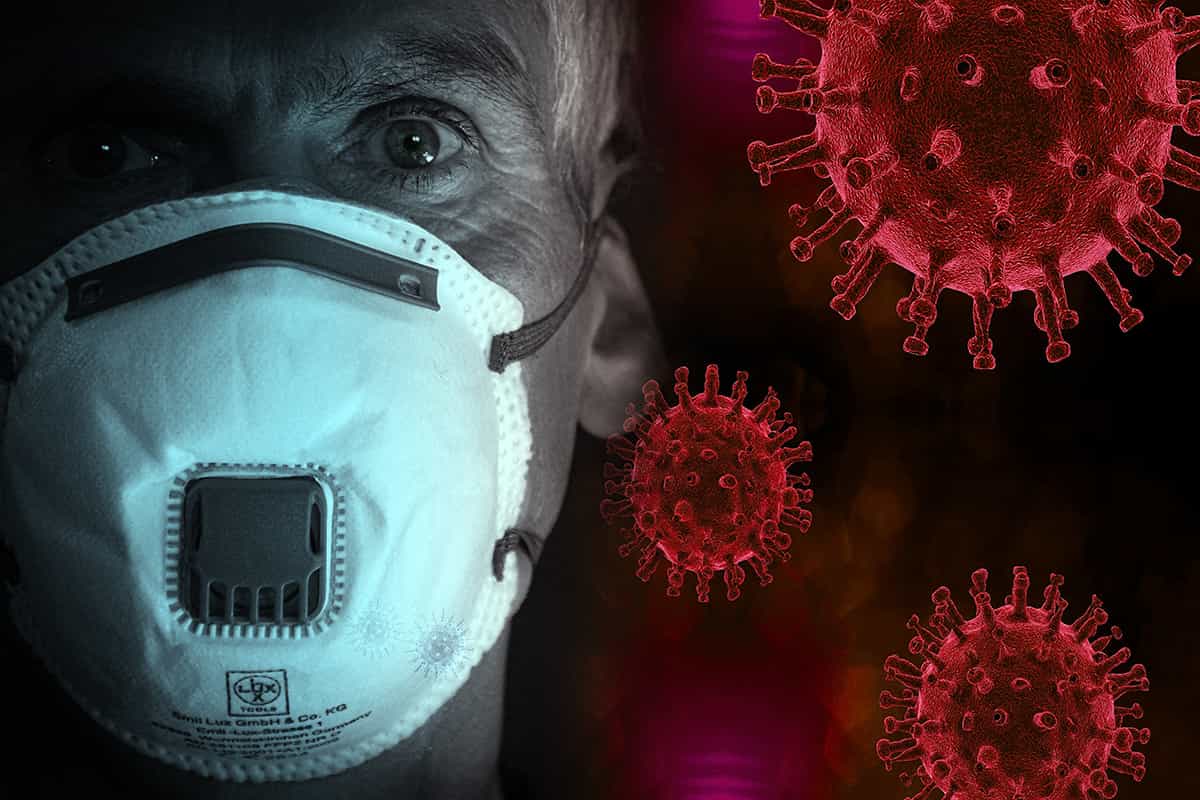Anyone showing symptoms of the novel coronavirus will now be banned from boarding domestic flights and intercity passenger trains, the prime minister announced at a press conference Saturday.
Speaking from outside Rideau Cottage in Ottawa, Prime Minister Justin Trudeau said that the federal government has now formalized its updated rules for domestic travel across Canada.
READ MORE: Live updates — Coronavirus in Canada
“As of Monday at noon, people showing any signs whatsoever of COVID-19 will be denied boarding at all domestic flights and intercity passenger trains.”
His announcement came during an update on Canada’s response to the novel coronavirus pandemic.
Asked why buses and coaches that also travel across provincial lines were not subject to the same measures, Trudeau responded that the new restrictions would only apply to industries that are under federal jurisdiction.
Story continues below advertisement
“Some industries are not under federal jurisdiction but we do recommend and in fact we are putting rules in place to make sure people do not take any trips anywhere if they have COVID-19 symptoms,” said Trudeau.
During an update from federal ministers on Canada’s response to the virus, Chief Public Health Officer Dr. Theresa Tam said that cases in the country have now topped 5,000.
[ Sign up for our Health IQ newsletter for the latest coronavirus updates ]
On Friday Trudeau announced the federal wage subsidy for small and medium-sized businesses affected by the COVID-19 outbreak would be jumping up to 75 per cent.
Trudeau had previously announced a 10 per cent wage subsidy, but conceded that it wasn’t enough.
“It’s becoming clear that we need to do more — much more — so we’re bringing that percentage up to 75 per cent for qualifying businesses,” Trudeau told reporters. “This means people will continue to be paid even though their employers have to slow down or stop their businesses.”

New federal help for small and medium-sized businesses
Meanwhile on Friday, Canada’s deputy chief public health officer said Canada’s fight with COVID-19 is far from over, and that it could include a second wave.
Dr. Howard Njoo said Canada is in it “for the long haul.”
Story continues below advertisement
“It’s definitely months. Many months,” Njoo estimated Friday as the number of novel coronavirus cases in Canada surged.
According to the Public Health Agency of Canada (PHAC), as of 6 p.m. ET on Friday, the total number of COVID-19 cases in Canada had topped 4,600.
The PHAC said more than 170,600 Canadians have been tested for the virus.
Global Affairs Canada (GAC) also offered an update on Friday, saying four flights repatriating citizens from Ecuador, Peru, Guatemala and El Salvador were set to arrive in Canada.
Canadians from Cusco leaving Peru today, thank you for your patience and trust. Thank you for supporting one another and helping us help you.
We continue to work for Canadians who remain in Peru. We are with you. #TeamCanada pic.twitter.com/51jW0RnSw9
— Canada in Peru (@CanadaPeru) March 27, 2020
Additional flights repatriating Canadians from Spain and Poland were also set to arrive on Friday.
Story continues below advertisement
“We are working to help as many Canadians as possible return home, but some may remain outside of the country for an indeterminate amount of time,” the release reads.
According to GAC, as of Friday, more than 411,400 Canadians had registered abroad.

Coronavirus outbreak: Trudeau says U.S. putting troops near Canadian border would be a ‘mistake’
But, because registration is voluntary, GAC said it is “not a complete picture of Canadians outside the country.”
GAC said as of Friday, 232 emergency loan applications had been approved, with an additional 800 applications being processed.
–With files from Global News’ Amanda Connolly and The Canadian Press
© 2020 Global News, a division of Corus Entertainment Inc.








